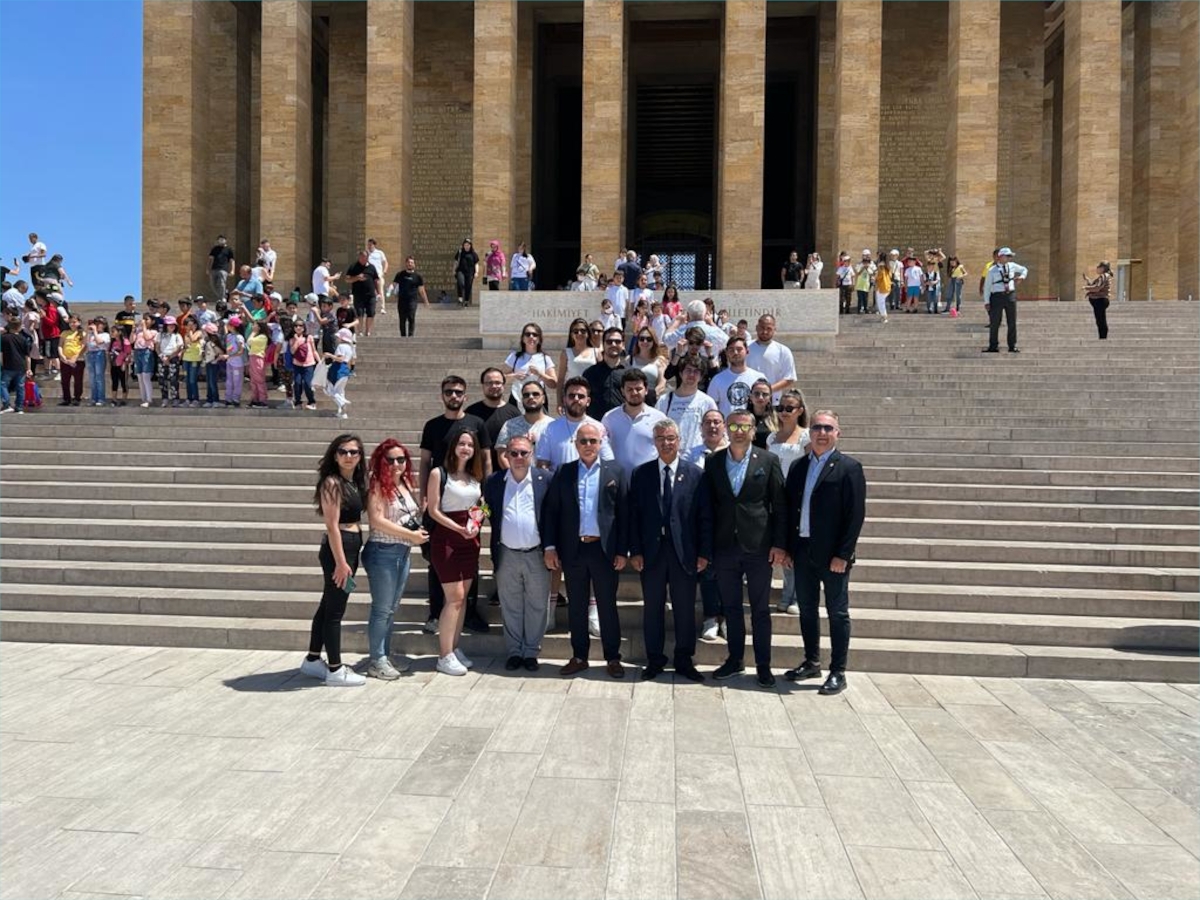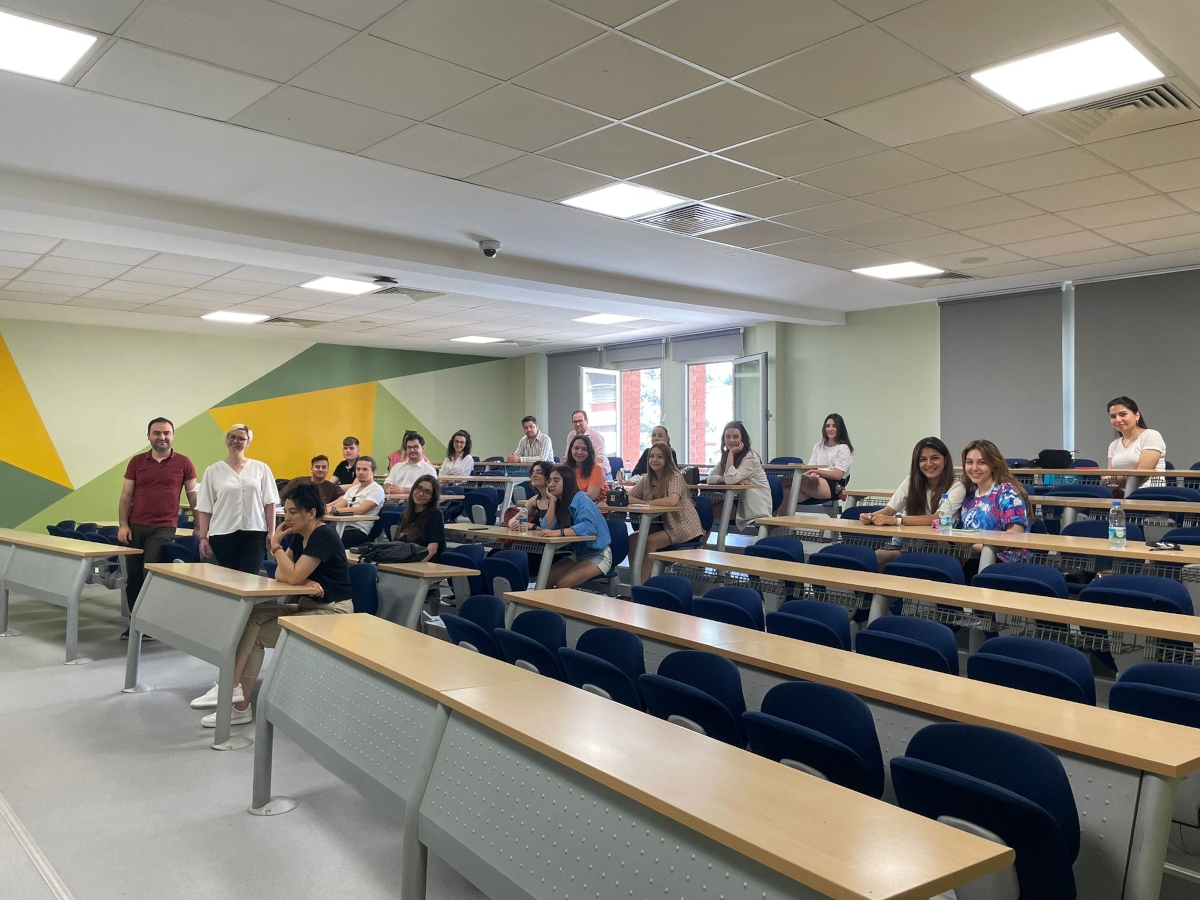
...

...

...
VOCATIONAL SCHOOL OF HEALTH SERVICES
Department of Opticianry| Course Name |
Computer Aided Office Programs I
|
|
Code
|
Semester
|
Theory
(hour/week) |
Application/Lab
(hour/week) |
Local Credits
|
ECTS
|
|
BLG 153
|
Fall/Spring
|
2
|
0
|
2
|
3
|
| Prerequisites |
None
|
|||||
| Course Language |
Turkish
|
|||||
| Course Type |
Elective
|
|||||
| Course Level |
Short Cycle
|
|||||
| Mode of Delivery | - | |||||
| Teaching Methods and Techniques of the Course | - | |||||
| National Occupation Classification | - | |||||
| Course Coordinator | - | |||||
| Course Lecturer(s) | ||||||
| Assistant(s) | - | |||||
| Course Objectives | The main purpose of the course is to gain experience to students to use Office programs such as MS Word, Excel, Powerpoint; Windows operational systems and internet. |
| Learning Outcomes |
The students who succeeded in this course;
|
| Course Description | Basic concepts of information technology, windows operating system, filing, backup, create folders, internet and communication, use of the word processing program, use of functions in excel and sample applications. |
| Related Sustainable Development Goals |
|
|
Core Courses | |
| Major Area Courses | ||
| Supportive Courses |
X
|
|
| Media and Management Skills Courses | ||
| Transferable Skill Courses |
| Week | Subjects | Related Preparation |
| 1 | Basic concepts of information technology | Uygulamalı ve Örnekli Bilgisayar I-II (Temel Bilgi Teknolojileri)\nYrd. Doç. Dr. Zehra ALAKOÇ BURMA Seçkin Yayıncılık, Ocak 2013, Part 1 |
| 2 | Windows operating system | Uygulamalı ve Örnekli Bilgisayar I-II (Temel Bilgi Teknolojileri)\nYrd. Doç. Dr. Zehra ALAKOÇ BURMA Seçkin Yayıncılık, Ocak 2013, Part 2 |
| 3 | Filing, backup, create folders | Uygulamalı ve Örnekli Bilgisayar I-II (Temel Bilgi Teknolojileri)\nYrd. Doç. Dr. Zehra ALAKOÇ BURMA Seçkin Yayıncılık, Ocak 2013, Part 3 |
| 4 | Internet and communication | Uygulamalı ve Örnekli Bilgisayar I-II (Temel Bilgi Teknolojileri)\nYrd. Doç. Dr. Zehra ALAKOÇ BURMA Seçkin Yayıncılık, Ocak 2013, Part 4 |
| 5 | use of the word processing program; menus, shortcut keys | Uygulamalı ve Örnekli Bilgisayar I-II (Temel Bilgi Teknolojileri)\nYrd. Doç. Dr. Zehra ALAKOÇ BURMA Seçkin Yayıncılık, Ocak 2013, Part 5 |
| 6 | use of word processing programs, scientific articles,sample applications | Uygulamalı ve Örnekli Bilgisayar I-II (Temel Bilgi Teknolojileri)\nYrd. Doç. Dr. Zehra ALAKOÇ BURMA Seçkin Yayıncılık, Ocak 2013, Part 6-7 |
| 7 | use of word processing programs, scientific articles, sample applications | Uygulamalı ve Örnekli Bilgisayar I-II (Temel Bilgi Teknolojileri)\nYrd. Doç. Dr. Zehra ALAKOÇ BURMA Seçkin Yayıncılık, Ocak 2013, Part 6-7 |
| 8 | Midterm Exam | |
| 9 | Spreadsheet program usage; menus, shortcut keys | Uygulamalı ve Örnekli Bilgisayar I-II (Temel Bilgi Teknolojileri)\nYrd. Doç. Dr. Zehra ALAKOÇ BURMA Seçkin Yayıncılık, Ocak 2013, Part 8 |
| 10 | Spreadsheet program for creating tables and charts | Uygulamalı ve Örnekli Bilgisayar I-II (Temel Bilgi Teknolojileri)\nYrd. Doç. Dr. Zehra ALAKOÇ BURMA Seçkin Yayıncılık, Ocak 2013, Part 8 |
| 11 | Use of function in Exel and sample applications | Osman Gürkan, "Microsoft Office 2016", Nirvana Yayınları (2016), pp. 114-.146 |
| 12 | Use of function in Exel and sample applications | Osman Gürkan, "Microsoft Office 2016", Nirvana Yayınları (2016), pp. 114-.146 |
| 13 | Use of function in Exel and sample applications | Osman Gürkan, "Microsoft Office 2016", Nirvana Yayınları (2016), pp. 114-.146 |
| 14 | Use of function in Exel and sample applications | Osman Gürkan, "Microsoft Office 2016", Nirvana Yayınları (2016), pp. 114-.146 |
| 15 | Advanced Excel applications | |
| 16 | Final Exam |
| Course Notes/Textbooks | 1- Uygulamalı ve Örnekli Bilgisayar I-II (Temel Bilgi Teknolojileri) Yrd. Doç. Dr. Zehra ALAKOÇ BURMA, Seçkin Yayıncılık, Ocak 2013 2-Bilgi ve iletişim teknolojisi, Abdurrahman Taşbaşı, Orhan Altınbaşak, 2006 |
| Suggested Readings/Materials |
| Semester Activities | Number | Weigthing |
| Participation | ||
| Laboratory / Application | ||
| Field Work | ||
| Quizzes / Studio Critiques | ||
| Portfolio | ||
| Homework / Assignments |
1
|
30
|
| Presentation / Jury | ||
| Project | ||
| Seminar / Workshop | ||
| Oral Exams | ||
| Midterm |
1
|
30
|
| Final Exam |
1
|
40
|
| Total |
| Weighting of Semester Activities on the Final Grade |
1
|
60
|
| Weighting of End-of-Semester Activities on the Final Grade |
1
|
40
|
| Total |
| Semester Activities | Number | Duration (Hours) | Workload |
|---|---|---|---|
| Theoretical Course Hours (Including exam week: 16 x total hours) |
16
|
2
|
32
|
| Laboratory / Application Hours (Including exam week: '.16.' x total hours) |
16
|
0
|
|
| Study Hours Out of Class |
16
|
2
|
32
|
| Field Work |
0
|
||
| Quizzes / Studio Critiques |
0
|
||
| Portfolio |
0
|
||
| Homework / Assignments |
5
|
2
|
10
|
| Presentation / Jury |
0
|
||
| Project |
0
|
||
| Seminar / Workshop |
0
|
||
| Oral Exam |
0
|
||
| Midterms |
1
|
7
|
7
|
| Final Exam |
1
|
9
|
9
|
| Total |
90
|
|
#
|
Program Competencies/Outcomes |
* Contribution Level
|
|||||
|
1
|
2
|
3
|
4
|
5
|
|||
| 1 |
To have the required contemporary theoretical and practical knowledge in his/her field |
-
|
-
|
-
|
-
|
-
|
|
| 2 |
To use the material and technology related to his/her field, and make their maintenance, use the information and communication technologies at basic level |
-
|
-
|
-
|
-
|
-
|
|
| 3 |
To have the competency to recognize the problems in his/her field, analyze them, develop evidence-based solutions and have the ability to share their suggestions with others |
-
|
-
|
-
|
-
|
-
|
|
| 4 |
To be aware of legal responsibilities, conduct basic studies in her/his field independently |
-
|
-
|
-
|
-
|
-
|
|
| 5 |
To communicate with patients, relatives and colleagues properly, comprehensively, honestly and explicitly, transfer his/her thoughts and knowledge through written and oral communication |
-
|
-
|
-
|
-
|
-
|
|
| 6 |
To take responsibility as an active team member during the practices in his/her field |
-
|
-
|
-
|
-
|
-
|
|
| 7 |
To commentate and evaluate the scientific information with a critical approach by the help of knowledge gained in his/her field |
-
|
-
|
-
|
-
|
-
|
|
| 8 |
To comprehend the importance of lifelong learning, to determine and meet her/his learning needs, to develop herself/himself by monitoring the development in science and technology |
-
|
-
|
-
|
-
|
X
|
|
| 9 |
To act by considering the universal ethical values, social and cultural characteristics |
-
|
-
|
-
|
-
|
-
|
|
| 10 |
To know the concepts of occupational safety, patient safety, environmental protection and quality, and fulfill the requirements |
X
|
-
|
-
|
-
|
-
|
|
| 11 |
To be able to follow information in his field and communicate with colleagues in English at least a level of European Language Portfolio A2 General Level |
X
|
-
|
-
|
-
|
-
|
|
| 12 |
To have knowledge and skills related to the administrative responsibility and management of an optician’s store |
-
|
-
|
-
|
-
|
-
|
|
| 13 |
To monitor visual health related products, determine the needs of the optician’s store and carry out activities for development |
-
|
-
|
-
|
-
|
-
|
|
*1 Lowest, 2 Low, 3 Average, 4 High, 5 Highest

...

...

...

As Izmir University of Economics transforms into a world-class university, it also raises successful young people with global competence.
More..Izmir University of Economics produces qualified knowledge and competent technologies.
More..Izmir University of Economics sees producing social benefit as its reason for existence.
More..